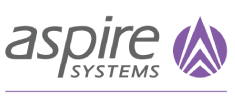VAT in U.A.E
Understanding VAT in UAE
Background, Definition, and Motive
Value Added Tax (VAT) is an indirect tax levied on supplies. More than 150 countries around the world have already implemented the VAT including Canada, Australia, New Zealand, Singapore and many European countries. The average rate of VAT around the world is 17% and Hungary has the highest VAT rate of 27 percent amongst OECD nations. GCC have entered a treaty to introduce and implement VAT and Excise across the GCC to create a wider scope of revenues for the Government. All the countries in the region shall prepare and implement their legislation for VAT based on the basic principles set out under the treaty. The Kingdom of Saudi Arabia (KSA) and United Arab Emirates (UAE) will be introducing VAT with effect from 1st January 2018. The rate of VAT in UAE will be on a lower side around 5 percent.
Meaning of Input and Output of VAT
Input VAT
As per the definition provided in Article 1 of the Federal Decree Law no. (8) of 2017 on Value Added Tax of the UAE Input Tax is the “Tax paid by a Person or due from him when Goods or Services are supplied to him, or when conducting an Import”. It is the tax paid by the manufacturer or the producer when procuring raw materials that add value to their finished product. The registered persons are eligible to claim VAT deductions on the input tax paid for delivering the supplies. It is important to note here that, only the input tax incurred in producing or delivering the taxable supplies is allowed to be deducted. However, if the business is producing exempt supplies, it cannot claim the deduction for input tax incurred on producing or delivering these exempt supplies. If the business is producing both the exempt as well as the taxable supplies, only the input tax incurred for producing and delivering the taxable supplies can be claimed for deduction. In a case, where it is not possible to ascertain the input tax paid on taxable supplies, the business should deduct partial tax in proportion to the final supplies forming part of taxable supplies.
Output VAT
As per the definition provided in Article 1 of the Federal Decree Law no. (8) of 2017 on Value Added Tax of the UAE Output Tax is the “Tax charged on a Taxable Supply and any supply considered as a Taxable Supply”. A person must be registered with the tax authorities for collecting VAT for charging VAT on its supplies. All the registered persons are liable to charge VAT on their supplies and maintain records e.g. Invoice issued, delivery receipt etc. as specified under the law. A VAT registered business must charges VAT on the invoices issued for the sale of its goods or services as per the rate applicable in the state. The standard rate in UAE is five percent. VAT on sales is specified in the invoice raised against the customer. It is notable that output tax shall apply even when goods are withdrawn for personal use of the business owners or management. The tax liability of the taxable person is the difference between the input tax paid and output tax charged on the supplies.
Meaning of Supplies, Goods and Services
Supplies
Supplies include all the taxable goods, services or transactions that are taxable either at standard rate or zero tax or exempted from the purview of VAT. The taxable supplies include:
- All goods and services (sales, transfer of ownership, rentals) come under VAT
- Transfer of goods from and to other member countries
- Transfer of good and services from and to other countries of the world
- Deemed supplies
- Import of goods and services
Goods & Services
Any product that sold for cash or other consideration is goods and services. Goods are tangible, i.e., they have a physical attribute. Services are intangible, i.e., they do not have the physical attribute.
Rates – Standard, Exempt and Zero
The standard rate for VAT is kept at 5% across GCC. All the supplies shall be subject to VAT at the rate of 5% if they do not fall under the zero rated or exempt category.
Impact of VAT in UAE and Gulf Economy
VAT system in UAE shall be a federal law. Important terms e.g. taxable person, economic activity, input and output tax, reverse charge, tax group, place of supply etc. shall have the same definition for all GCC nations as defined in GCC VAT treaty. UAE shall also use the same. The GCC treaty makes use of reverse charge mechanism extensively, which is justifiable also as they are making a law for multiple countries same in line with European Union.
How VAT will impact your business in UAE
Planning and Analysis
VAT is a tax which infuses itself with the operations of the business. It is not a tax that is paid at the end of the year or after deduction of profit or loss calculation. As it becomes an integral part of the purchase or sale of goods, there arise a need for careful planning and analyzation of your business.
- The first step is to find out the threshold limits of VAT implementation in the business. The business should register in advance if it is anticipated to cross the threshold limit for mandatory registration in near future
- Analyze your business needs and where you are paying Input VAT and where you should collect Output VAT
- Establish a clear line of communication between you and your buyers and suppliers. Ensure your long term agreements properly document the responsibilities regarding tax liabilities to be borne by the business, its buyers and suppliers
- Educate your staff on the implementation and usage of VAT
- If there is need of workshop, find a VAT consulting firm who can educate your employees or suppliers
- Designing a new VAT compliance checklist
- Ascertain the potential impact of VAT on your business
Systems that need to be placed, checked and replaced
Check whether the existing IT systems are compatible with the function of VAT. If not, there should be a reconfiguration process implemented to funnel those changes into the system. Many enterprises would have to reconfigure their system to not only for VAT related documentation e.g. details to be mentioned in the invoices, timelines for maintaining records etc. but also for ensuring compliance in terms of calculation and filing of returns and payments to be made to the Government. Changes are to be implemented not only in the IT and ERP process but also in the workforce.
The business can follow these steps to bring about a system change:
- Map the process and transactions where the system of VAT will impact
- Check the ERP system used by the business is adaptable to your business specific VAT needs. If not, reconfigure the systems
- Map out the legal impact of VAT to your business
- Preconfigure Input tax credit allocations in your system to help in raising an invoice for the price which is inclusive of VAT and specified the details are per the requirements under the law
- Check whether correct updating system is in place to apprise the enterprise automatically f the changes in the VAT implementation
- As VAT works on a transactional level, ensure the records generated is verified and compliant with the VAT rules
- Seek professional legal and tax advice for proper implementation of VAT procedure and rules
After the implementation of the VAT system in the business, the business has to keep up with the following requirements:
- Keep track of the statutory compliances required to be done
- Maintain VAT accounting with the regular accounting functions of the business
- Update VAT Master Data of all vendors
- Reconcile vendor VAT data for Input credits
- Compute the eligibility for Input credit
- Compute VAT final liability
- Aiding in the preparation of MIS reports
- Filing VAT in an appropriate manner
- Updating the system to accommodate the changes or updations in the VAT legislations
Ascertain cash flow and organize them in a manner where the business does not feel the pinch of a restricted cash flow.
Understanding Exempt, Zero-rated and Standard Supplies
It is crucial to understand the difference between the exempt, zero rated and standard rate supplies as they have a huge impact on the VAT liability of the business.
Standard Supplies
The supplies subject to standard rate of tax in the state are included in this category, In GCC countries, the standard rate is at 5%. Similarly, as in case of zero rated supplies, the supplier can claim the credit for input tax paid in producing and delivering these supplies. Companies should carefully evaluate its supplies and catagorize supplies and assign the VAT rates according to the classifications. Even the ERP systems are to be tuned to this adjustment for effortless transactions and their related billing. The business should use a platform that provides clear and concise differentiation between the supplies. While billing zero rated and standard rated supplies or exempt and standard rated supplies, specific care should be taken to apply the specified rates for each product. The accounting software should be set to identify these differences, but the supplies classification of these supplies must be done manually by the company accountants.
Zero Rated Supplies
The applicable rate of tax on these supplies is zero. However, the supplier of these supplies are allowed to claim the credit of input tax paid in process of producing and delivering these supplies. The states can decide about the supplies they want to keep zero rated for the purpose of tax. Article 45 of the Fedral Decree – Law no (8) of 2017 of UAE deals with zero rated supplies. In UAE, following supplies are zero rated:
- Exports of goods and services to outside the GCC
- International transportation, and related supplies
- Supplies of certain sea, air and land means of transportation (such as aircrafts and ships)
- Certain investment grade precious metals (e.g. gold, silver, of 99% purity)
- Newly constructed residential properties, that are supplied for the first time within 3 years of their construction
- Supply of certain education services, and supply of relevant goods and services
- Supply of certain Healthcare services, and supply of relevant goods and services
Exempt Supplies
These supplies are not subject to VAT. The supplier of these supplies are not allowed to deduct input tax for incurred in producing and delivering these supplies. Article 46 of the Federal Decree – Law no (8) of 2017 of UAE deals with exempt supplies. Basic necessities e.g. healthcare, education etc. are generally kept as exempt supplies from taxes. In UAE, following supplies are kept as exempt:
- The supply of some financial services (clarified in VAT legislation)
- Residential properties
- Bare land
- Local passenger transport
The VAT To-Do List
The To-Do list for the business can be classified under following categories:
Compliance
- Ensure whether proper books of accounts are maintained and updated
- Check whether your business meet the criteria for registering for VAT collection
- Registration for VAT
- Collection of VAT in the invoices raised
- Keep record of VAT paid in Invoices of Vendors to avail credit
- Filing VAT returns and payment of VAT to the Government
Price Structure and Profit Margins
VAT shall impact the pricing structure and profit margins to factor the VAT in all the invoices raised by business. A critical analysis will be required for this to ensure that business will face the least impact by preparing customized pre-and post VAT scenarios for every business. Also, increase in price may result in result in decline in customer spending. It will be challenging to maintain the same.
Restructuring of Business Model
- Increased efficiency in operations
- Restructuring of supply models to ensure reduce cost of procurement of raw materials and capital goods
- Possible negotiations with vendors and suppliers
- Restructuring of Human resources to ensure that the staff is competent enough to deal with the challenges bough in by the new law
- Restructuring of accounting systems and IT systems to ensure proper compliance and competency with new requirements
Books, Records and Accounting for VAT
Information and records to be maintained
The authority mandatorily requires all VAT registered entities to maintain their financial statements and cash flows. They shall have proper evidence of all the transaction, copy of invoices for purchase, records of payments received and payment made.
How to do accounting for VAT related supplies, goods and services?
VAT impacts cash flow, the import/export considerations, and the intra GCC transactions.
Cash Flow and VAT
VAT registered business need to regulate their cash flow in a manner which makes the business to be in a liquid position. The business needs to plan its steps accordingly so that the deferred payment made on VAT is compensated by the immediate collection of VAT receivables from the customers. Collection and payment of VAT on time to avoid any adverse effect on your cash flow.
Customs and VAT
While importing goods from other countries, the business should consider the other duties and taxes that will be levied on the goods inclusive of the VAT that is applicable. The importer should assess and specify the amounts incurred from VAT and the taxes calculated under other duties and taxes clearly to avoid any adverse impact on the cost structure.
Intra GCC transactions
While transacting between the GCC countries additional care is to be taken on the accounting for the VAT payable if the business is a customer or the VAT receivable if the business is the seller. It is anticipated that there will be specific rules applying to these transactions. The businesses are advised to adopt detailed recording and reporting while transacting within the GCC countries.
VAT and Government Supplies
When goods supplied to the government, it is ordinarily not treated as a course of business. Government is a not a taxable person and falls under the exempt category of VAT. However, VAT is said to have an impact if the goods or services supplied by the statutory or local authorities as they might be similar to their course of business. However, VAT is not applicable if the supplies are in the notion of fulfilling their regulatory and enforcement requirements. The Government will likely be treated as an “exempt person.” The taxable person supplying taxable goods or services to the Government will likely not be required to charge VAT. The executive regulation expected to be issued by the Ministry of Finance (UAE) is should throw more light on this topic.
Layout of VAT Invoice
The taxable persons should maintain a proper record of invoices issued and the invoices shall specifically have mentioned the following information:
- Unique Invoice No.
- Date of Issue
- Time of Supply
- Name, Address and TRN of Supplier Quantity of goods and terms of services supplied
- The amount should be in AED for if in foreign currency the rate of exchange and its source
- Such other information as may be prescribed in the executive regulation
Point of charging VAT
VAT registered businesses charge and add VAT to goods or services they supply. VAT registered business can also claim Input VAT for the goods or services purchased to for business purpose with some exceptions like the purchase of raw materials or consumables used in the production of business. The points where VAT is charged are specified in Article 25 of the VAT law decree:
- The date on which the goods were transferred and the transferred goods were supervised by the seller
- The date on which the goods were received by the buyer if the seller has not supervised the transfer
- If the goods are to be assembled and installed, the date on which the assembly and installation are complete
- The date on which the goods are imported with customs legislation
- The date on which the customer accepts the supply of goods (no later than 12 months) after the transference of the goods or place at the customer’s disposal if the sale was on a returnable basis
- In case of services, the date on which the service was completed
- The date of receipt of payment or the date on which the tax invoice was issued to the customer
VAT Rules
Rules for Mandatory and Voluntary Registration
All the entities have total annual turnover of AED 375,000 are mandatorily required to be registered for VAT. The entities whose total annual turnover of AED 187,500 have the option to voluntarily register themselves for VAT. Calculation of threshold limits
- Total values of supplies made in current month and eleven preceding months
- Expected value of supplies in subsequent thirty days
- Exempt supplies shall be excluded when calculating value of supplies
Non-Established taxable persons are also required to be registered for VAT.
Rules for De-Registration
The entities shall de-register themselves from VAT in the following conditions:
- Cessation of Economic Activity
- Cessation of taxable transactions
- The value of taxable transaction falls below the voluntary registration threshold
Detailed executive regulations for De- registration are still awaited.
VAT Grouping
The branches of a company operating in multiple locations shall come under same group and shall have a single VAT Registration number. This is going to be an intricate issue and more clarification is awaited from the authority.
Liabilities of VAT registered entities
VAT is a tax which is self-assessed by the VAT registered entities. It must be recorded and assessed by the enterprise and report its obligations and claim its benefit under the VAT law. The other requirements of the VAT registered entities are:
- Compulsory registration of business that crosses a threshold of VAT specified amount
- Voluntary registration by businesses which are within the specified threshold
- Must charge VAT on taxable goods or services they supply
- Filing periodic monthly or quarterly return of VAT returns
- Paying VAT payable by the due date
- Record keeping duties of the VAT registered entries:
- Tax invoices issued or raised
- Import or export related invoices
- Debit or credit note
- Goods or services used for personal use
- Records relating to exempt and zero rated supplies
All businesses in the UAE will need to record their financial transactions and ensure that their financial records are accurate and up to date.
Treatment of Input and Output Tax
VAT registered businesses charge output VAT during a sale or pay Input VAT while sourcing materials for the production of their goods. The business can reclaim the VAT incurred for the goods and services that were bought for the business purpose. In the case of import, VAT is charged at the point of entry on the homeland, and there will be additional customs duties that apply to the goods imported.
Penalties for non–compliance
The authority has majorly classified violations under two categories viz. administrative and tax evasion violations. Administrative violations will include non-maintenance of proper books and records and tax evasion violations shall be where the assesses willingly attempt to evade his tax liabilities. The detailed punitive provisions are will be mentioned in executive regulations, expected to be released soon. The punitive provisions are expected to be very stringent and includes prosecution of violators. The Federal Tax Authorities (FTA)’s can visit business for inspection of their records and books.
Appeal
If a person is aggrieved regarding his VAT liabilities, he shall file an appeal within 20 working days. The authority shall response within 20 working days of receipt of appeal. If he is not satisfied with the decision of the authority, he can appeal to the appeal committee within 20 working days. The appeal committee shall consist of one judge and two tax experts. If he is not satisfied with the decision of appeal committee, he can approach court within 20 working days and the decision of courts shall be binding on the parties.
Documents required for filing the VAT Registration Application
- Trade License
- Certificate of Incorporation/ Formation
- Articles of Association/ Partnership Agreement or any other document showing ownership information about the business
- Books of accounts, financial statements, invoices, Purchase orders, vouchers etc.
Global Reach, Local Expertise
- 175+ Countries
- 525+ Locations
- 17,500+ Professionals
- 2350+ Global Partners

Need Assistance?
Get In Touch
We appreciate your interest in IMC and are eager to address your needs.
To ensure we address your needs accurately and promptly, please fill out this form. This will help us in identifying and connecting you with the appropriate team of experts in our organization.
We take pride in our responsiveness and aim to get back to you within a span of 1-2 business days. Your journey towards solutions starts here.
Companies we have worked with










































 IMC Group
IMC Group